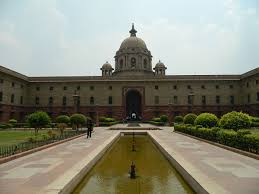New Delhi: The Prime Minister’s Office (PMO) has refused to share details of alleged corruption complaints received against Union ministers, saying providing such information “may be subjective as well as a cumbersome exercise”.
The PMO’s assertion comes at a time when a senior officer in the country’s premier probe agency – Central Bureau of Investigation – has levelled corruption charge against Union Minister of State for Coal and Mines Haribhai Parthibhai Chaudhary. Replying to an RTI query, it said the PMO receives complaints against various Union ministers and high-level functionaries from time to time.
“These include pseudonymous and anonymous complaints. The complaints so received are duly examined keeping in view the veracity of the allegations/accusations and supporting documents in relation to these accusations,” the PMO said in reply to the RTI application filed by whistle blower bureaucrat Sanjiv Chaturvedi.
Chaturvedi, an Indian Forest Service officer, has exposed several corruption cases in the All India Institute of Medical Sciences (AIIMS) here when he was posted as the chief vigilance officer – which acts as a distant arm of the Central Vigilance Commission to check corruption – from July 2012 to August 2014.
In its reply to the RTI plea, the PMO said after taking the needful action, the records are not kept in one place and these are scattered across different sectors and units of this office.
“These complaints received relate to a variety of matters including corruption related and non-corruption related matters. The applicant in his application has only sought details of all corruption related complaints.
“To identify, examine and categorise each of these complaints as corruption related complaints may be a subjective as well as a cumbersome exercise,” the PMO said.
The collation of information sought will require the undertaking of thorough search of numerous files, it said.
“Such an exercise will disproportionately divert the resources of the office from the normal discharge of its functions and attract the provisions of Section 7 (9) of the Right to Information Act,” the PMO said.
The section says “an information shall ordinarily be provided in the form in which it is sought unless it would disproportionately divert the resources of the public authority or would be detrimental to the safety or preservation of the record in question”.
Time Will Tell
A set pattern of attacks on the Supreme Court of India has emerged last week from two sources – one...
Read more





































